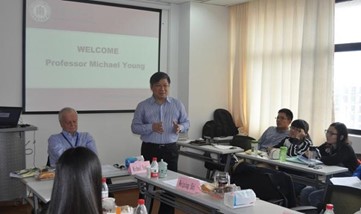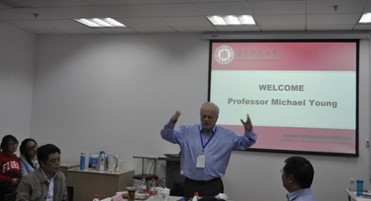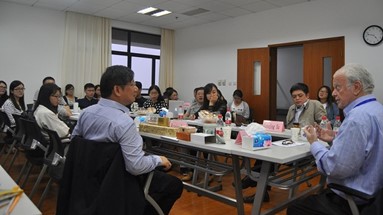

On November 7, at the invitation of Professor Shi Weiping, director of the Institute of Vocational Education and Adult Education of East China Normal University, Professor Michael Young, a famous educational sociologist of the Institute of Education, University College London, exchanged views with teachers and students of our institute on issues like the current situation of vocational education in Britain, Britain’s national qualification framework, vocational education courses and etc. in classroom A1306 of the Science Building. Professor Shi Weiping, Xu Guoqing together with many graduate students attended the exchange meeting.

Professor Shi Weiping first gave a brief account of the academic research areas which Professor Michael Young engaged in and the academic contributions he made, with a special emphasis on the importance of his book Knowledge and Control in the field of educational sociology.
In the beginning, Professor Michael Young briefly introduced his personal experiences and explained how they were related to vocational education. He pointed out that vocational education is not only a road to employment, but also a way for students who have failed or have been denied in school to return to education. That is why knowledge, not just skills, is so important in work such as the development of national vocational qualification framework and the research of vocational courses. Then the professor talked about his understanding of vocational education from the following aspects: “vocational education as part of school education”, “vocational education as an industry”, “the equivalence of vocational education and academic education”, “practicality of vocational education learning”, “curriculum theory on vocational education”, “vocational education as a second choice” and “the supply orientation of vocational education”.

After the report, teachers and students of our institute asked the professor questions about knowledge in vocational education courses, the British National Qualification Framework and the development of general cultural courses in vocational colleges. Professor Young not only answered the questions in a patient and detailed manner, but also expressed his wish for further communication with students through e-mail.
